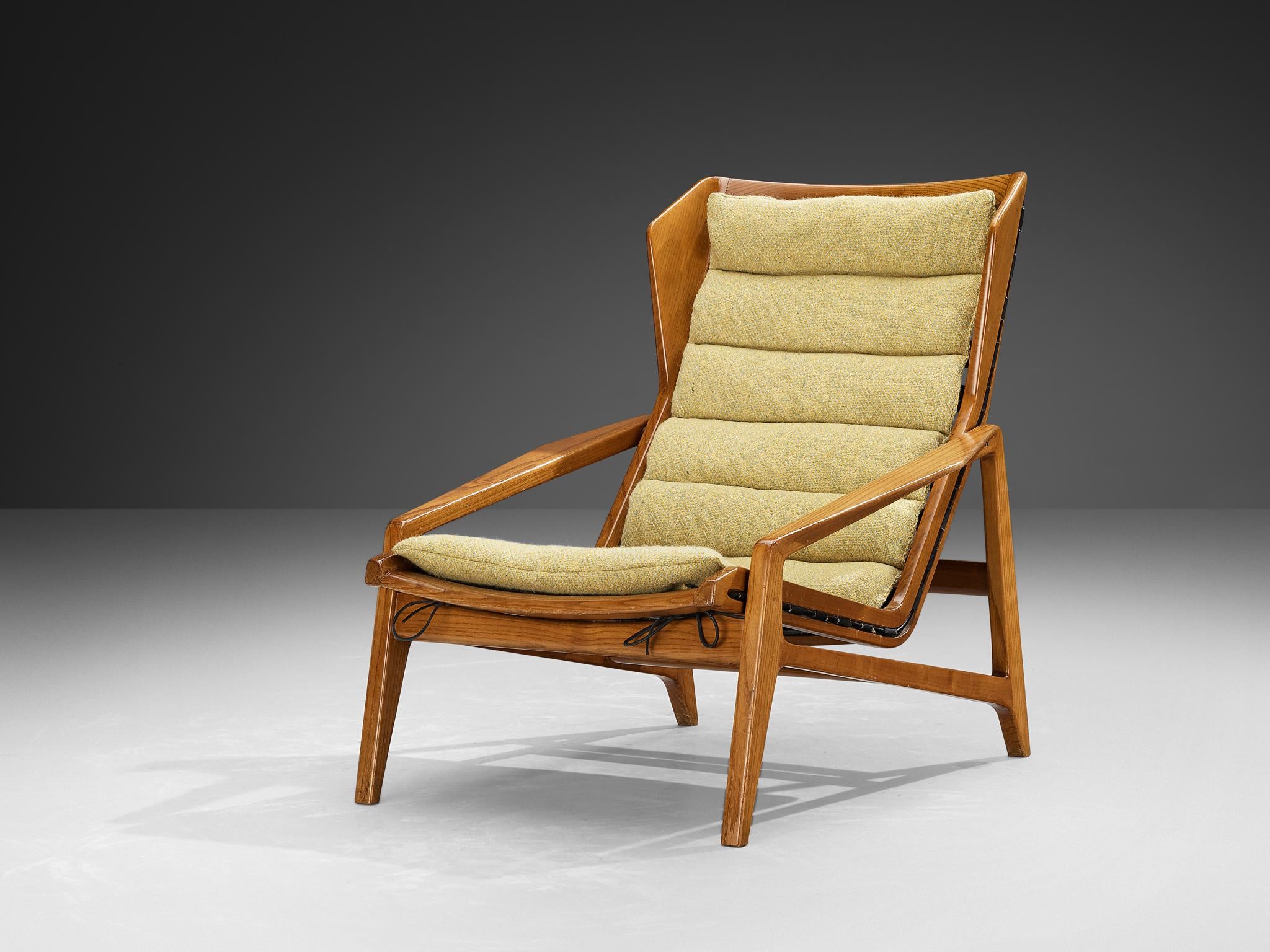
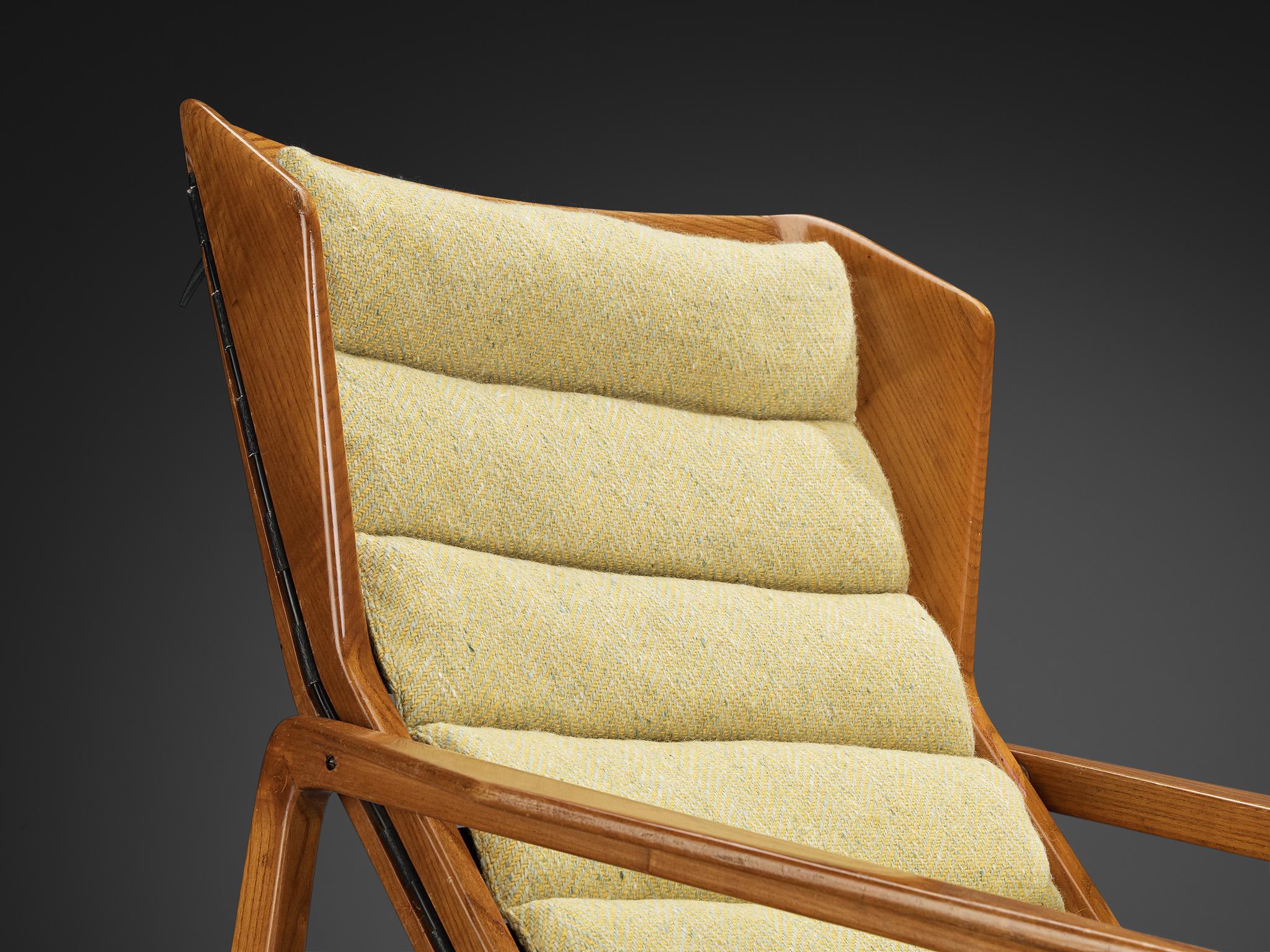
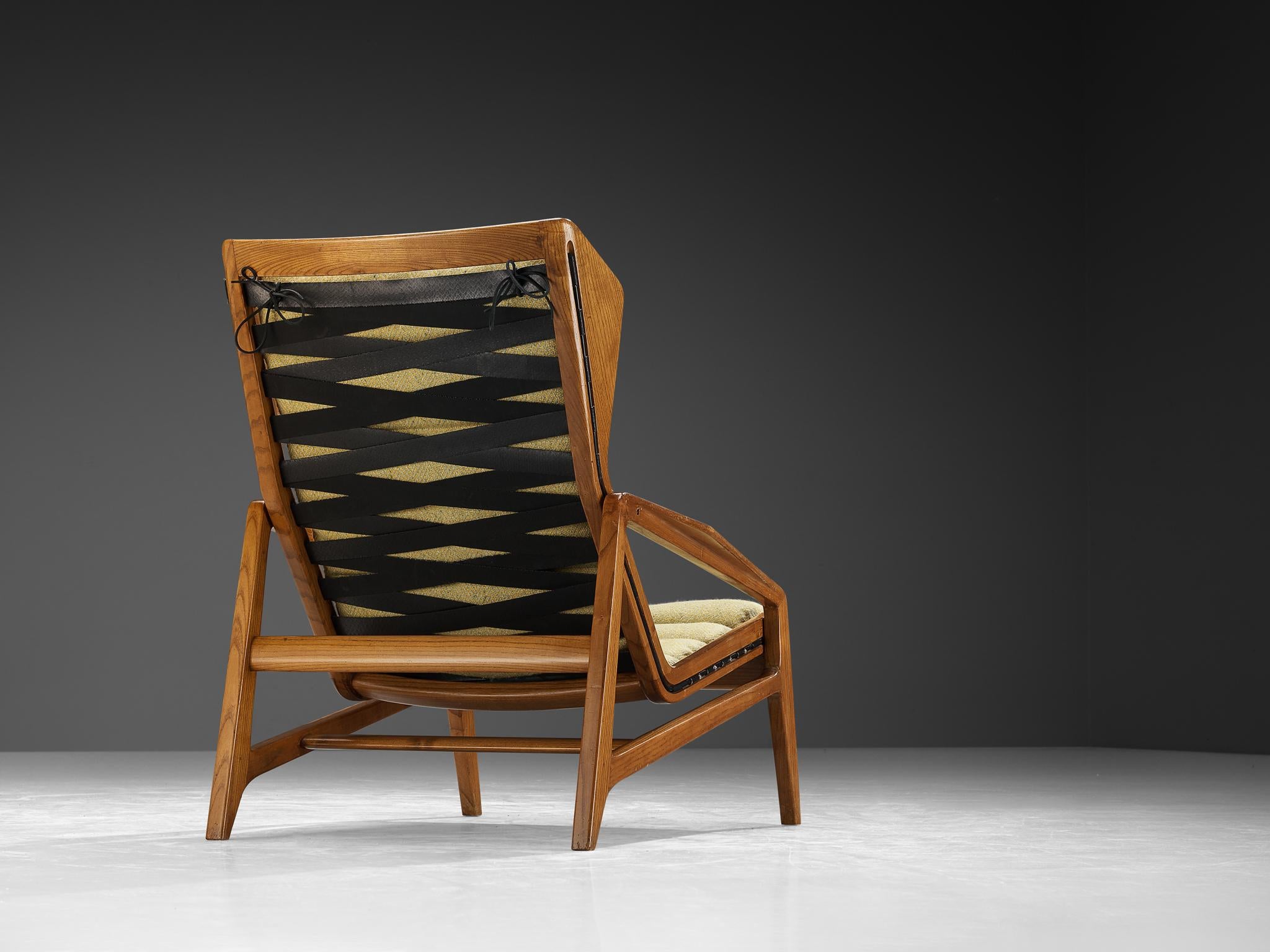
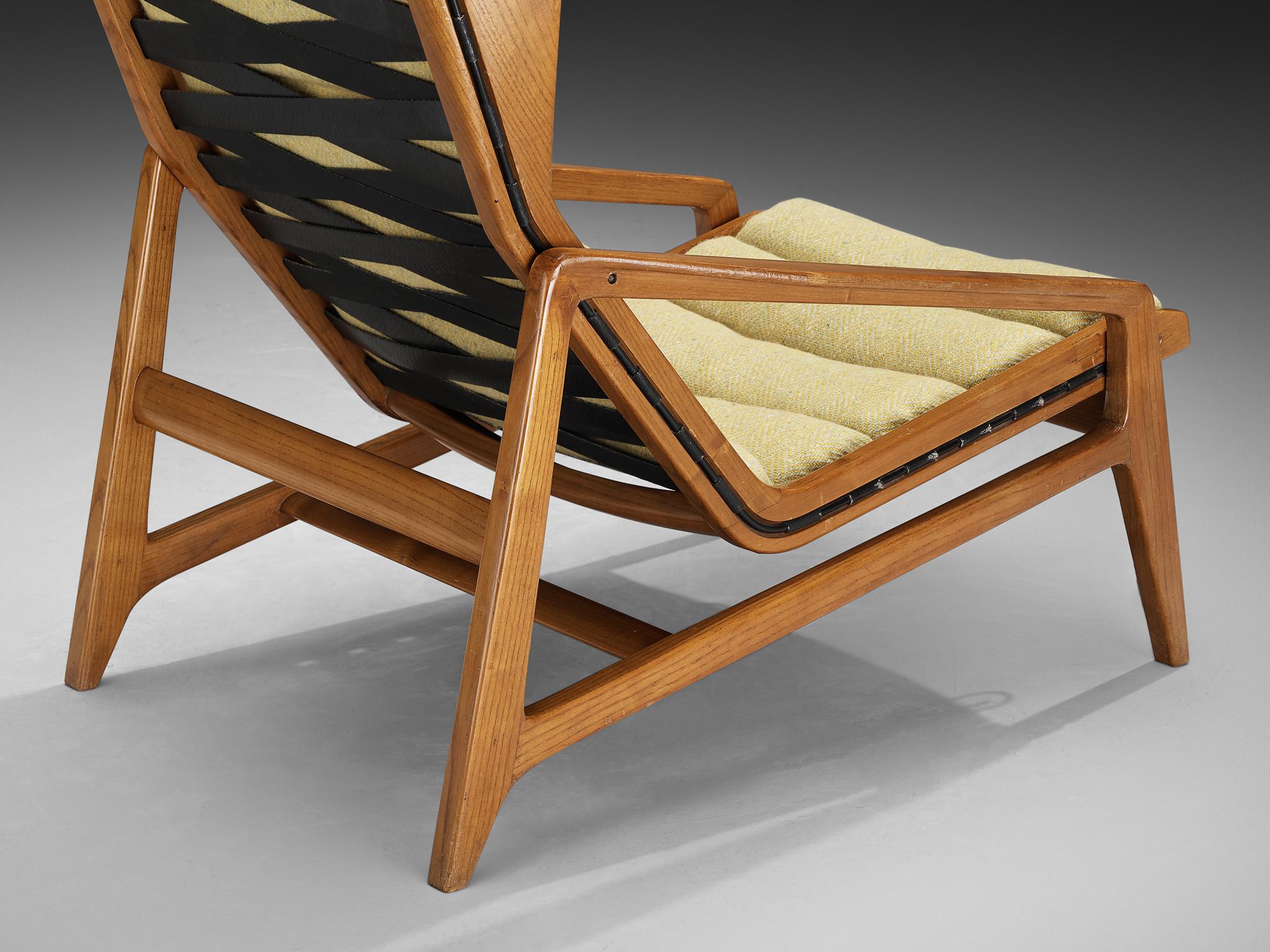
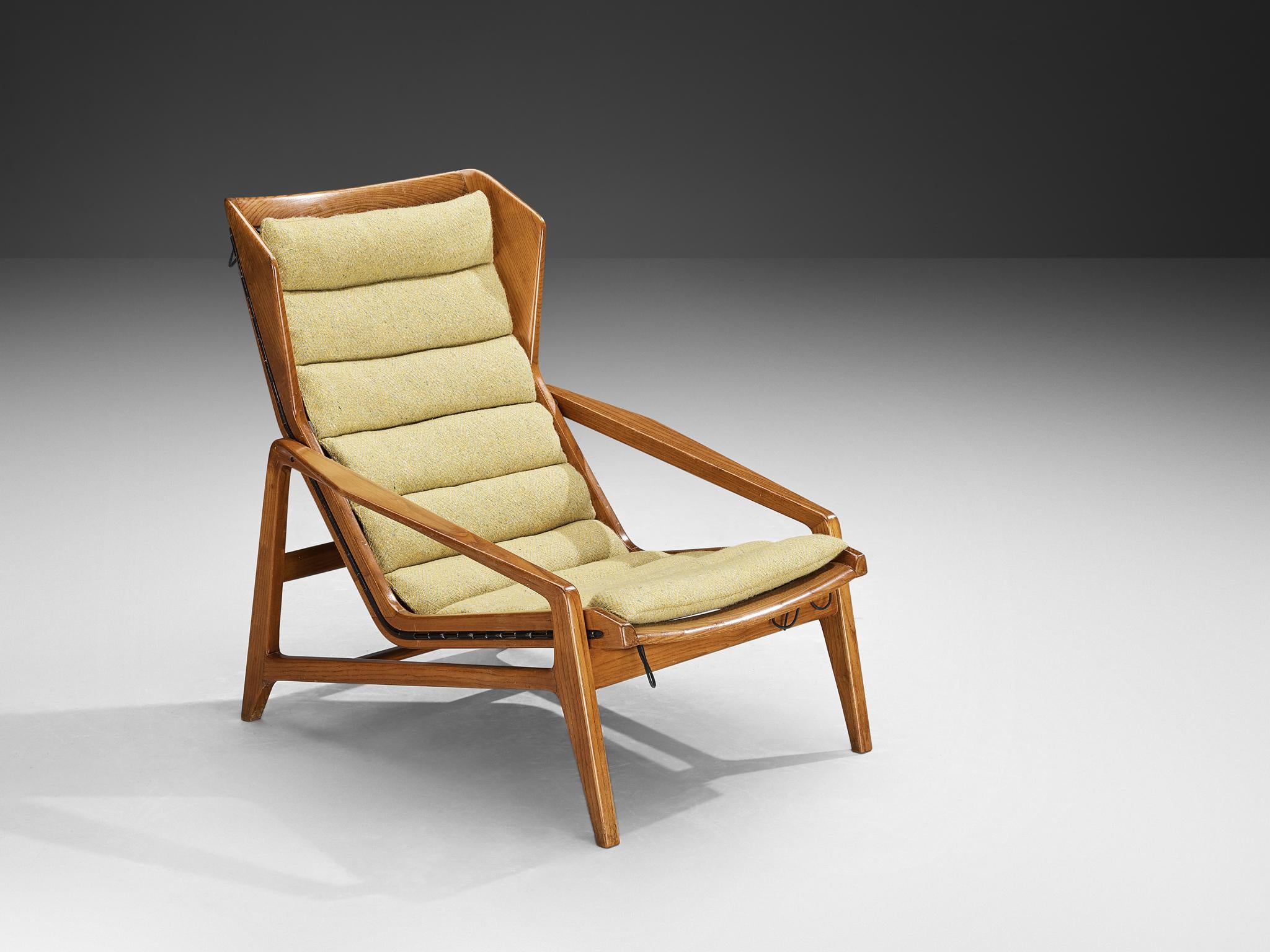
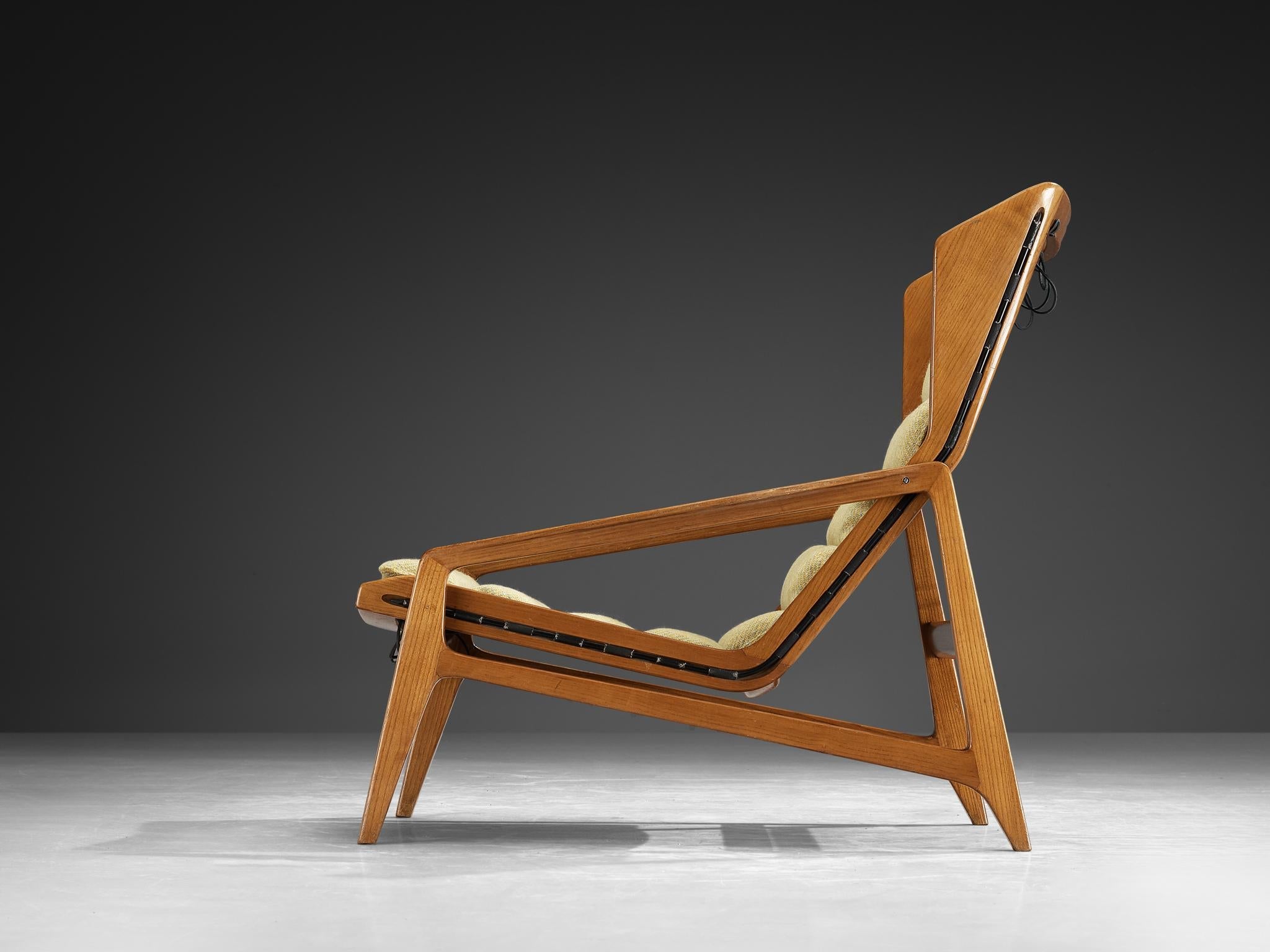
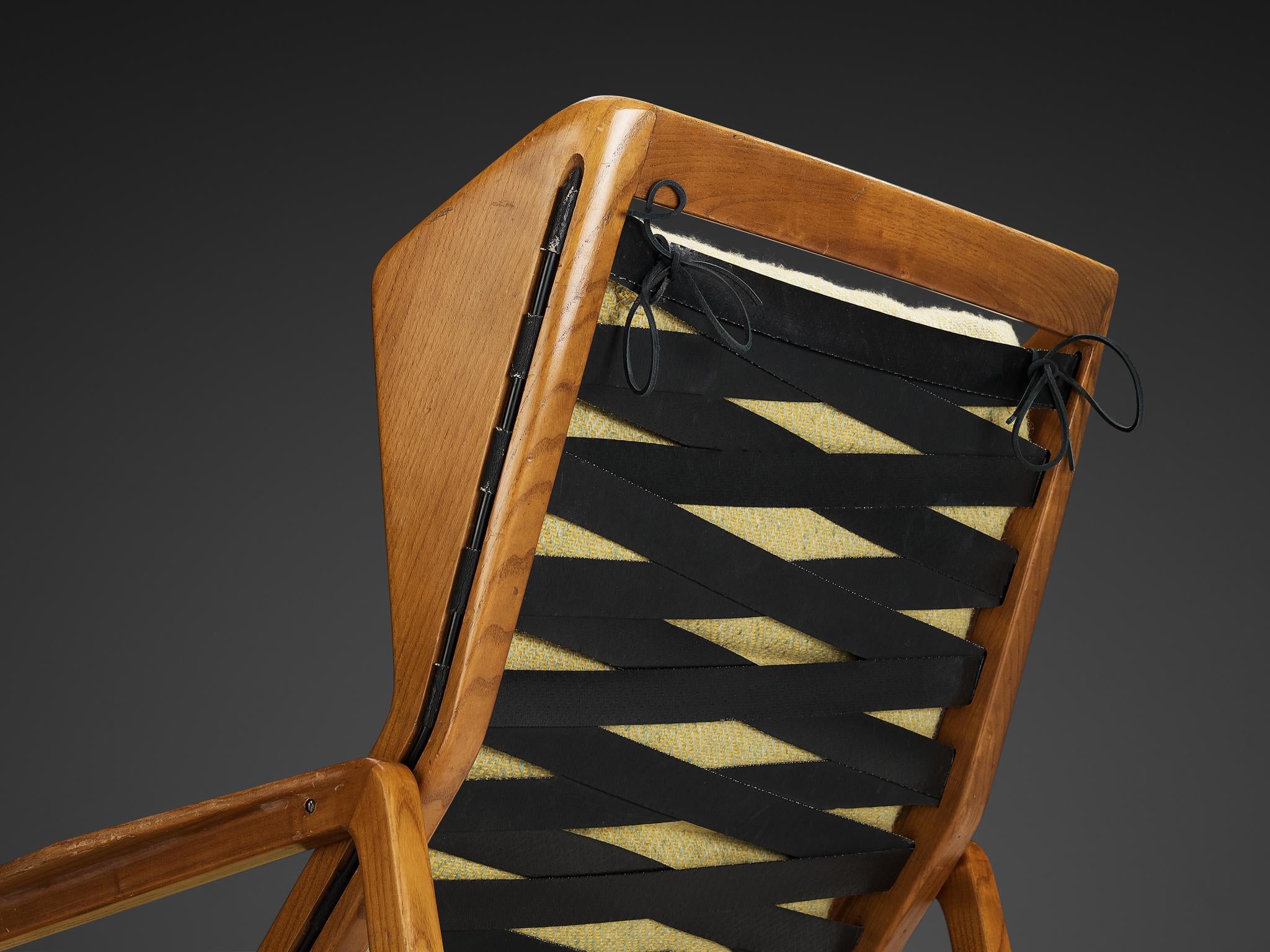
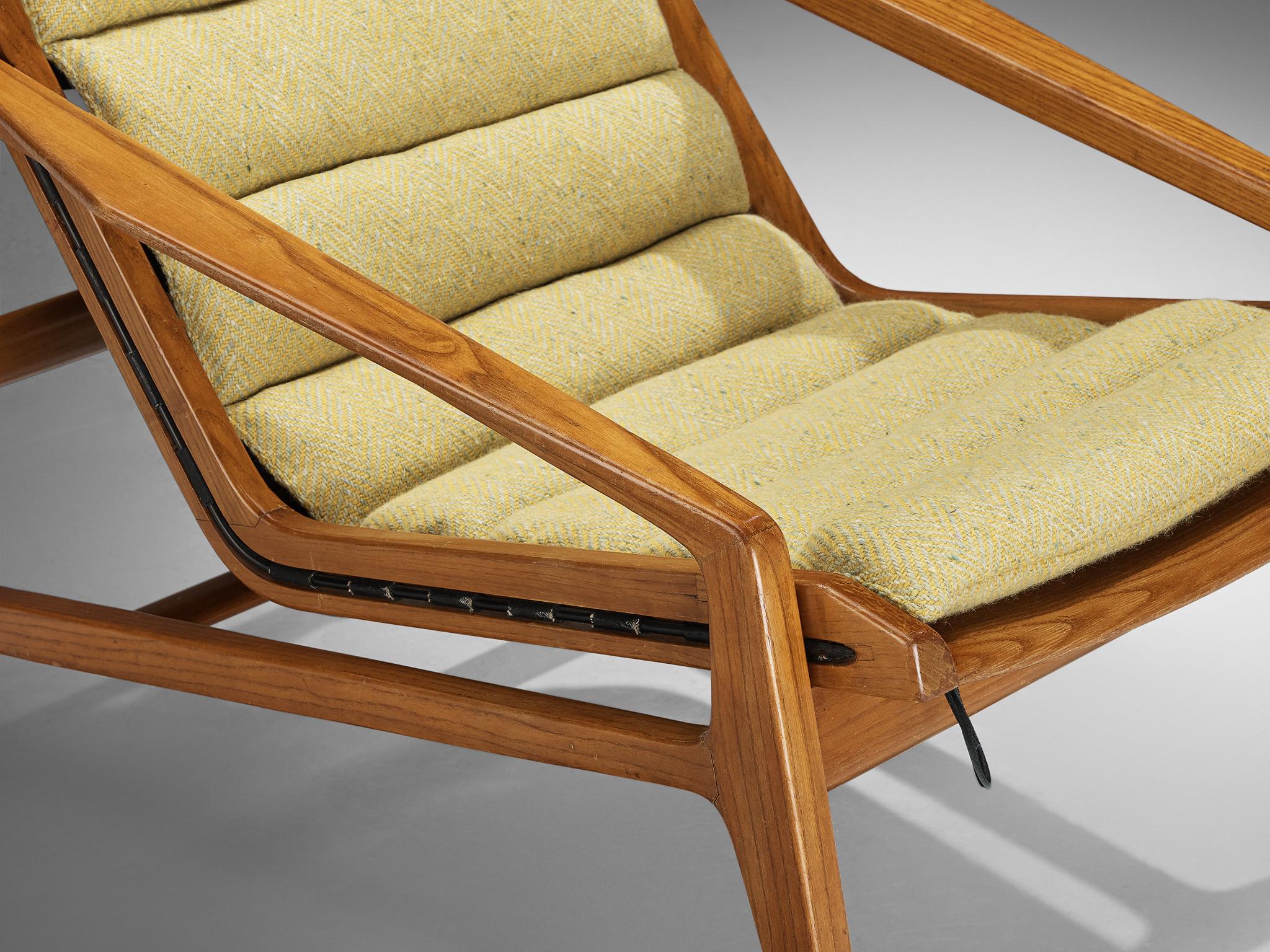
Gio Ponti for Cassina '811' Lounge Chair
Gio Ponti for Figli di Amadeo Cassina, lounge chair, model ‘811’, chestnut, fabric, rubber, coated metal, Italy, design 1957
Made in 1957, this rare lounge chair model ‘811’ is designed by Gio Ponti for Figli di Amadeo Cassina. This armchair is defined by geometric shapes, logical proportions, and visible constructivist elements. For the composition, the designer integrated elements in a balanced and harmonious manner. Meaning that the chair carries a symmetrical layout where both sides mirror one another. The chestnut frame is made according to a strict and linear plan with sharp lines and angular shapes as outcome. The open gaps between the slats give the chair a more open look. The metal framework is expertly integrated into the wooden construction, providing strength and stability. Notably, the angled backrest features pointy ears, adding to the unique visual allure of the piece's design. The back embodies a graphic appearance due to the cross-shaped rubber straps. The upholstery consists of a single padded cushion executed in a yellow patterned upholstery. This design is made with great attention for detail and excellent woodworking. Characterized by simplicity, clarity and absence of ornamentation, this piece of furniture is exemplary of architectural minimalism.
Giovanni (Gio) Ponti (1891 – 1979) is one of the most influential Italian designers of the twentieth century. His contribution to architecture, furniture design and the arts has been substantial. Born in Milan in 1891, he attended the Polytechnic University of Milan, where he graduated in Architecture in 1921 after serving the military during WWI. He opened his first studio in 1927 in Milan with architect Emilio Lancia. Soon after, he founded Domus magazine in 1928 with Gianni Mazzocchi, which became one of the most prominent European magazines in architecture and design. Ponti participated during the Triennale exhibitions of the 1930's, and later he became a member of the Triennial committee. A significant shift can be distinguished in his designs between the two World Wars. During the early years, Ponti's style positioned between rationalism and Lombard Classicism that came forward in his use of decorative elements in his furniture and objects. Functionality and a pragmatic approach started to play a bigger role in his later designs. His work as a designer fully took off after WWII, and he became an important figure in Italian industrial aesthetics that conquered the international markets in the 1950s. Gio Ponti worked together with many designers, such as Antonio Fornaroli and Alberto Rosselli, and his work has been of great inspiration for even more. A few amongst Ponti's followers are Paolo Buffa, Paco Muñoz and Lina Bo Bardi, as with the latter Ponti worked together on a series of projects during the early period of Bo Bardi's career.
Kindly note that this item is in good, used condition.
VAT within the EU: When buying or delivering an item within the EU, VAT usually applies and will be added.
Choose options








Product Details